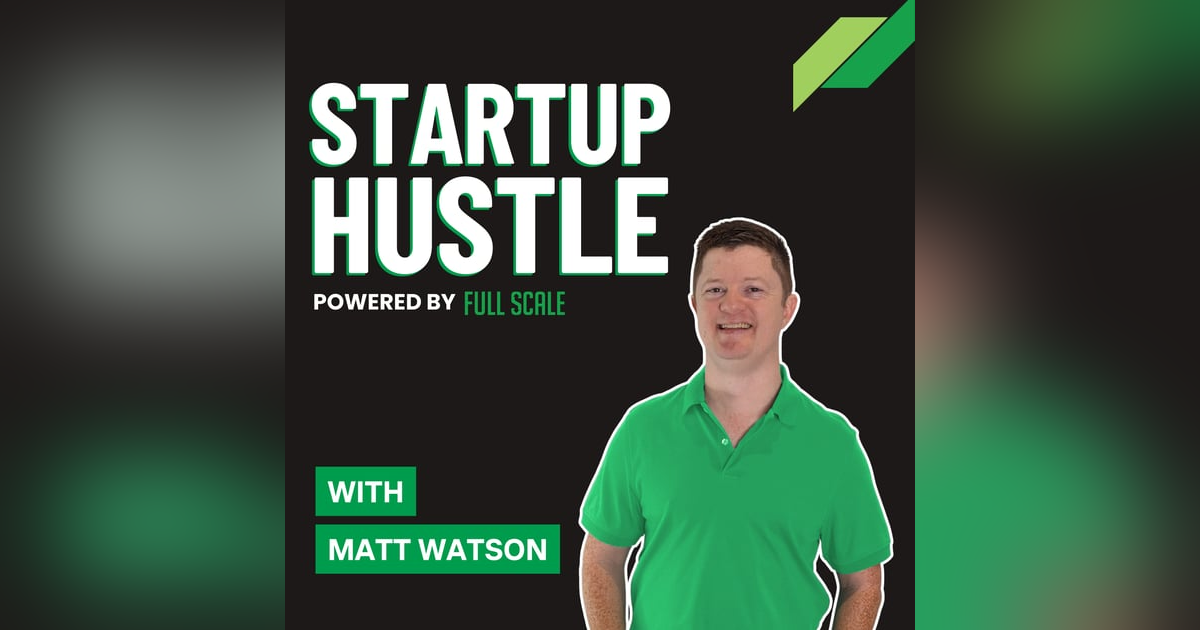Cincinnati Top Startups, 2022

Most would say Cincinnati, Ohio, is known for its food, museum, and sports scene. However, it is emerging as an unexpected tech hub due to its recent forays into innovation. Find out more through the 10 Cincinnati companies and top startups we handpicked for you.
Do you know the expression "when pigs fly" used to describe something that will never happen? Well, this funny one-liner may not fly so well in Cincinnati, Ohio, because people do see pigs fly through there. It was known once as "Porkopolis" because of its thriving pork production. As a result, you might see several flying pig statues in the city and even participate in the Flying Pig Marathon.
All pigging aside, Cincinnati is most famous for its Skyline Chili, available year-round. It also hosts Oktoberfest Zinzinnati, the largest such event in the US, held at the end of September. When visiting the city with your family, check out the Cincinnati Zoo. It is purportedly the best in the US, with over 500 animals and 3,000 plant species.
With that said, most people don't know Cincinnati is, in fact, a rising tech hub, thanks partly to recent projects such as the Smart Cincy initiative and Cincinnati Innovation District development.
Most locals call their city Cincy, but it has other nicknames. These include The 'Nati, Queen City, Queen of the West, Blue Chip City, and the City of Seven Hills.
Listen to the Podcast Episode about Cincinnati's Top Startups
Cincinnati doesn't have a handy tech-specific nickname yet. However, we would be less than surprised if it became known as "Silicon Queen." Let’s see what we can make happen!
As of this writing, Crunchbase identifies 195 companies founded in Cincinnati from 2017 to 2022, 97 of which are tech-related. Learn about 10 Cincinnati companies and top startups that are on that list.
Top Cincinnati Startups to Watch in 2022

Most Cincinnati companies are ultra-focused on the aspects they believe are critical to success. These obviously include a viable product and enough funds to keep going. However, a startling 40% of small businesses overlook a crucial aspect: business insurance.
Business insurance is like any type of insurance: critical to have when you need it but hope you never will. As a result, 75% of businesses have insurance but not enough to cover all contingencies. Among the reasons small business owners oftentimes do not get cybersecurity or liability insurance is cost and complexity. Coterie Insurance addresses both challenges.
Coterie Insurance is an insurtech company making it easy and affordable for anyone to get business insurance. It uses an API-based approach to deliver straightforward coverage, accurate pricing, and a streamlined experience for any business.
As a business owner, you can get instant policy quotes and go through the underwriting process entirely online. You can get instant coverage for what your business needs with a click of a button.
Agents and brokers also benefit from the platform because they can digitize their operations to better serve small Cincinnati companies, independent contractors, and the gig economy. If you already have a digital insurance platform, you can integrate Coterie's simple APIs to streamline the insurance quoting and binding experience.
At the helm of Coterie Insurance are Founders CEO David Mcfarland and COO Kevin Mackey. It has raised $70 million in four funding rounds from 12 investors since its founding in 2017. The latest was from a Series B round on October 26, 2021.

David Mcfarland
CEO & Founder, Coterie Insurance
Startup Hustle spoke with David Mcfarland on the topic of "Small Business Insurance Simplified."

Artificial intelligence (AI) is a sexy concept. Imagine having machines do most of the grunt work for you so you or your company can be the best version of itself. It is so attractive that 91.5% of leading businesses spend money developing AI.
However, using AI and building effective AI software are two very different things. Mantium helps Cincinnati companies do the latter in minutes and manage them at scale.
Mantium is an end-to-end global cloud platform provider for building large language models, AI applications, and automation. It helps businesses and organizations tap the skills of technical and non-technical team members in a low-code cloud environment.
With Mantium's state-of-the-art language models, you can create and manage AI applications at scale. Its integrations automate a wide range of cognitive grunt work. These include classification, question and answering, translation, search, text generation, customer service, and administration summarization. As a result, data scientists and software engineers can spend more time innovating and less on reinventing the wheel.
Soon, you can also build an AI application with a few clicks using Mantium's highly specialized AI Builder blocks. The feature is currently in beta testing.
Mantium founders Ryan Sevey and Jason Montgomery serve as CEO and CTO, respectively. Founded on January 8, 2021, it raised $12.8 million in a Seed round on November 9, 2021.

Ryan Sevey
CEO & Founder, Mantium
Startup Hustle spoke with Ryan Sevey about "Wartime vs. Peacetime for Startups."

Training and development cost companies an average of $1,308 per employee in 2019. Cloverleaf.me takes a shot at bringing that cost down.
Cloverleaf automates personal and team coaching tasks to help businesses in team development. It helps them make the most of each employee and make them better team players by analyzing their personalities and skills.
The goal of Cloverleaf is to empower enterprise leaders, team managers, coaches, and consultants to tap into each employee's unique value. The dashboard provides the data to help improve communication effectiveness and resolve conflicts more efficiently.
Moreover, the functionalities of the service will depend on the plan you choose. You get access to 16 types of employee assessments, role recommendations, and relationship mapping for team plans. Each user can create any number of Team Dashboards and automated team coaching sessions via email and Slack.
Aside from developing teams, the Cloverleaf SaaS can help Cincinnati companies solve diversity, equity, and inclusion (DEI) issues. The platform can facilitate social integration, improve cognitive diversity, and overcome cognitive bias. Chief Research Officer Dr. Scott Dust explains how in this video.
The automated, personalized coaching platform has helped more than 20,000 teams and nearly one million users work better together. Founded in 2017, Cloverleaf has CEO Darrin Murriner and COO Kirsten Moorefield at the helm. The company has raised $10.8 million over five funding rounds from 12 investors since its founding. Its latest funding was a Series A round on June 9, 2022.

Kirsten Moorefield
COO, Cloverleaf.me
Startup Hustle spoke with Kirsten Moorefield about "Self Awareness."

Most people herald the advent of a cashless society as progress, but it simply doesn't work for everybody. About a quarter (22%) of American households are unbanked or underbanked, meaning they have gaps in banking access. That creates challenges when paying bills, especially at the start of a school year or in emergency health situations.
The pandemic was no help as families lost jobs and the ability to make payments in person. Inclusivity is lacking, and this is where Pay Theory comes in.
Pay Theory is a payment platform that enables service providers to accept any form of payment. This platform aims to give online payment access to all, regardless of banking status. It focuses on must-pay services such as school, childcare, and health services but opens the door to SaaS vendors for all sectors.
The platform allows underserved families to complete digital payment transactions without having a credit card. They can pay physical cash for online purchases using a network of retailers from which 95% of the population lives within a one-mile radius. These include about 65,000 outlets of Dollar General, 7-Eleven, CVS, Walgreen, and Walmart.
Anyone can pay a bill generated by a Pay Theory partner on its mobile app or website. The payer can choose cash, card, check, or payment plan. If the payer chooses cash, the app issues a barcode that the payer can present to a partner retailer. After scanning, the retailer accepts the payment, marking the bill paid and reconciled among all parties.
The simplified payment architecture of Pay Theory integrates with many SaaS platforms already in use by service providers, such as schools and doctors' offices. That means these service providers and Cincinnati companies do not have to set up a separate channel to accept Pay Theory payments.
Pay Theory is under the leadership of founders CEO Brad Hoeweler and CTO Eric Fulkert. It has raised $2.4 million in three rounds from eight investors since its founding in 2019. Its latest funding was a Seed round on February 4, 2022.

Have you ever thought about how complex automation works on sites like Airbnb? A lot of data runs through in the backend so that you can book your next vacation without a hitch!
The technology that makes it possible is Apache Airflow, an open-source Python-based platform for managing data engineering workflows. Apache Airflow is popular because it can flexibly create and manage large data pipelines.
However, it is not easy to set it up. Users must manually wade through 120 different configuration options, which can take some time. Astronomer makes that easier for Cincinnati companies by automating the whole process through Astro. It enables development teams set up the Airflow environment in hours instead of days.
Astro is a fully-managed software service that simplifies creating and managing a large Airflow environment. The platform improved the open-source Airflow experience, transforming it into a container-based application so Airflow can run as a service in the cloud. It helps teams make sense of their data ecosystem to build faster and reduce operational risk and management issues.
Astro pulls together and manages the data in one place in the cloud without needing DevOps so the team can focus on code to accelerate pipeline development. Users acquire complete visibility into and control over their data activity and dependencies across pipelines and environments.
Founded in 2018, Astronomer operates under CEO Joe Otto and CTO Steve Zhang. It has raised $282.9 million over nine funding rounds from 22 investors since its founding in 2018. The latest funding was a Series C round on March 23, 2022, and the company acquired Datakin on the same day. According to PrivCo, Astronomer has a post-money valuation range of $500 million to $1 billion.

Everyone and their cousin will tell you the labor market for tech professionals is tough on the employers' side. Finding the right talent to fill software development and engineering roles is an uphill climb anywhere in the developed world. Fortunately, Hearty Collective cuts down on some of the legwork.
Characterized as a LinkedIn alternative for developers and engineers, Hearty Collective is a network of top-tier professionals in the information tech space. Vetted by its in-house tech team, Hearty Collective has thousands of candidates for various tech roles. The platform matches software engineers to the right hiring companies based on their respective requirements.
There is no fee to join the collective. Cincinnati companies and candidates join the community to access Leaderboards, acquire NFTs for professional achievements, and learn from members. When a company needs talent, it can browse Leaderboards specific to the role they need to fill. They can make an offer when they find candidates they like based on their profile and recommendations. When a Hearty member accepts an offer, the hiring company pays a success fee.
Founded in 2020, Hearty Collective is the brainchild of Bob Gilbreath, Ryan Watson, and Ross Lewellyn. Working as CEO, COO, and CTO, respectively, they raised $1.1 million in a Pre-Seed funding round in April 2021.

Financial advisors and professionals have a lot riding on them. They guide their clients into making good decisions regarding annuities and investment products. Luma Financial Technologies helps ease the burden significantly.
Luma Financial Technologies is an independent, multi-issuer platform for annuities and structured products. It boasts one of the broadest selections of market-linked investments.
They provide banks, brokers, dealers, and financial advisors an efficient way to source, configure, compare, and structure financial products. They can meet customer needs using the platform, customizing products according to their requirements and situation.
The Luma Compare feature, for instance, gives financial advisors advanced data analytics to compare a customer's annuity product. It enables users to propose a replacement annuity product such as 1035 exchanges using a more personalized approach.
Luma's education and training system also help financial professionals maximize sales and marketing. It provides life cycle support post-sales to ensure advisors give clients the best deals.
Backed by some of the largest banks, Luma is a spin-off of Navian Capital to serve the structured product market. It expanded into the annuity space in February 2021 and has since gained enormous traction among financial advisors. The platform's advanced technology features provide users with the following:
- Access to top-quality training on annuity products
- Ability to compare rates, riders, and product features to make the most informed decisions for clients
- Streamlined annuity sales process
- Access to all annuity product types through its carrier-neutral platform
Founded in 2018, Luma benefits significantly from the expertise of CEO Timothy Bonacci and CMO Rodney Branch. It earned $30.1 million in a Venture-Series Unknown round on December 20, 2021.

Email marketing is effective and affordable as a marketing strategy. It has a return on investment of $36 for every $1 spent. However, an average open rate of 21.5% means potential customers do not even see eight out of ten messages you send. A click-through rate of 2.1% means only two people out of ten that open your message act on your CTA.
These are the hard facts about digital marketing, but you can improve on the results. You can augment your marketing efforts through Navistone.
Navistone provides the technology that enables users to collect data from website visitors and send customers personalized direct mail. In a world where people get so many digital messages, receiving physical mail is a welcome break. Direct mail clocks in at an average open rate of 75% and a 9% response rate. Those are among the highest response rates among marketing channels.
With NaviStone's technology, advertisers and marketers can turn website visitors into potential direct mail recipients. It allows clients to obtain critical information about website visitors, including behavior, postal name, and addresses, without contravening privacy laws. Navistone uses a double-blind system, so website visitors retain their anonymity.
Led by CEO Larry Kavanagh and founder/CFO Efrain Torres, Navistone has received recognition from the Cincinnati Business Courier as the Best in Marketing Innovation in 2018. It has also received $6.6 million over four funding rounds from three investors since its founding in 2016. NaviStone's latest show of investor support was a Series B round on May 25, 2018.

Consider how much data flows through the pipelines of any modern tech-based business. When operational issues occur in disconnected tools and technologies, troubleshooting can entail a lot of back and forth. The delay in resolving issues can result in significant data downtime and productivity losses. Pantomath can help minimize these challenges.
Pantomath is a cloud-based platform with end-to-end data observability and traceability tools to support operations across complex systems. Consequently, it allows users to instantly identify the root cause of operational issues in real-time with a single view. With its Operations Center, users can gain insights into the health and performance of data pipelines using dynamic filters and interactive visualizations.
In other words, Pantomath can say what happened, what was affected, and how to fix problems with a data line. Site reliability and data engineers can resolve issues across several data verticals without dependencies or escalations. They can test and run an entire data pipeline with a single click.
The goal of founder and CEO Somesh Saxena’s company is to reduce operational and productivity losses by empowering an enterprise's IT team. Founded in March 2022, Pantomath immediately closed $4 million in a Seed round from two investors.

Anyone who has purchased real estate knows it starts with writing a check for earnest money. Earnest Money Deposits (EMD) are often pain points in real estate because of the manual input and security risks involved. Payload solves that problem and more.
Payload was initially formed in 2019 for the real estate industry to eliminate the need for physical EMD checks. Today, Payload has evolved into a set of developer toolkits for integrating payment channels and automating any business or marketplace invoicing. It offers service providers and merchants a one-click method to receive EMD and other payments. Think of it as Venmo for B2B companies
It recently launched Keybox, an API product for automating the collection and reconciliation of EMD, agent fees, commissions, and other payments. The process is simple and convenient, making it a favorite with real estate companies and agents.
The company has also secured a partnership with Skyslope, a digital transaction management system for the real estate industry. With Keybox integration, SkySlope users can automate the collection and deposit of EMDs in seconds within their SkySlope account.
The Cincinnati Business Courier named Payload a "2022 Startup to Watch." Payload is under the leadership of fintech guru and innovator Ryan Rybolt as CEO and Ian Halpern as CTO. It acquired $1.5 million In a Debt Financing round on April 6, 2022.
Cincinnati Startups Spice Up the Tech Scene
Whether you're a fan of Skyline Chili or not, Cincinnati is definitely spicing up the tech scene with these 10 Cincinnati companies. Entrepreneurs in Ohio looking to make a splash are sure to find like-minded people in The Queen City.
If you would like to read more about top startups in other cities, check out our list here!
At Startup Hustle, we always like to be in the mix with innovative startups. We would love to learn more about hustlers in the Cincinnati entrepreneurial space. Join us at Startup Hustle!
And if you are looking to build a stronger software development team quickly and affordably, head on over to our parent company, Full Scale, to get started.







